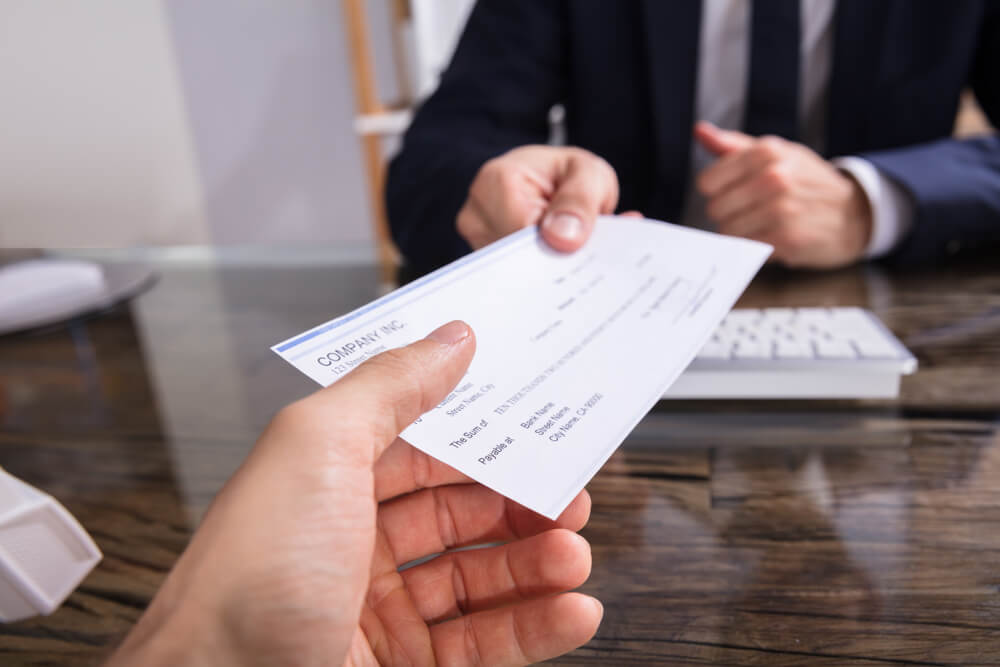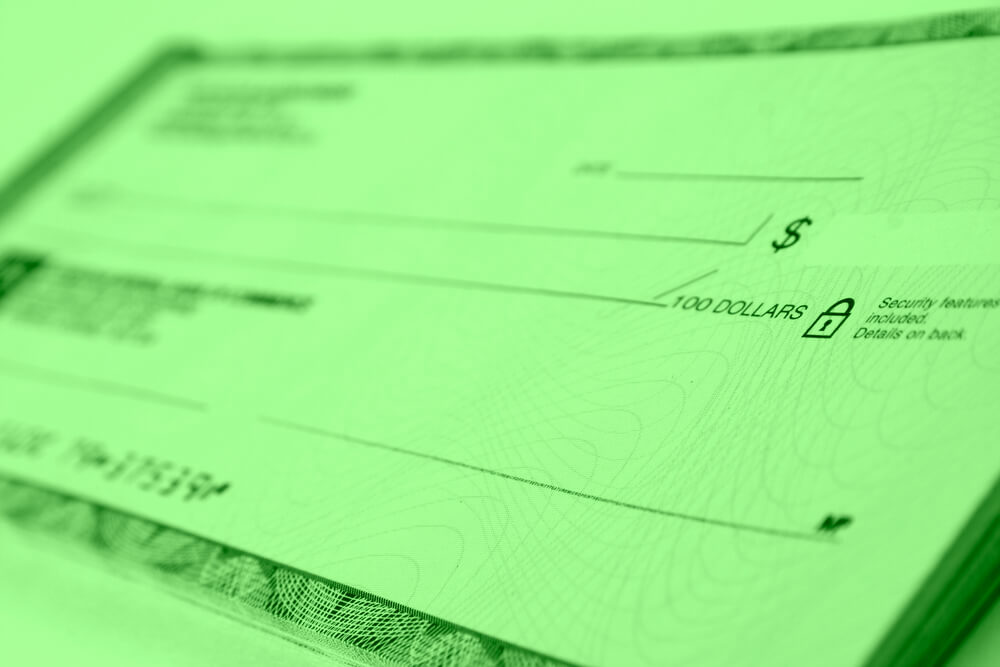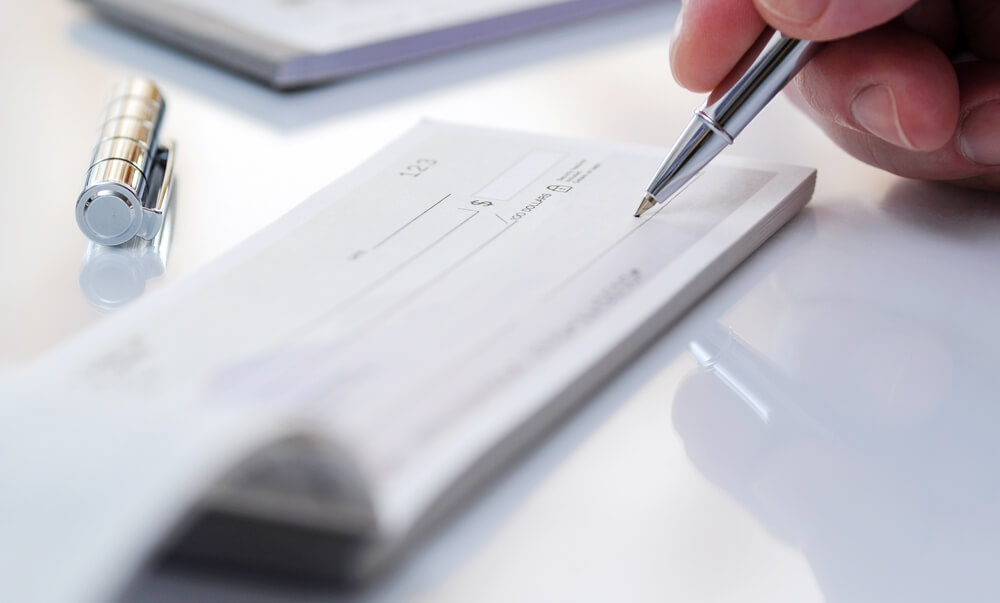Each year, roughly 500 million checks are forged. While some of these checks are written intentionally, even people who are not knowingly writing false checks themselves may experience check fraud and accidentally come into possession of a fraudulent or fake check. Since this is a widespread problem, understanding how banks handle fraudulent check deposits will help protect you from scams and legal problems.
Can You Go to Jail for Depositing a Fake Check?
Many people think check fraud is perfectly harmless since you are just depositing a piece of paper with your bank. However, the reality is that it can be quite serious. What happens if you try to deposit a fake check? Can you go to jail for depositing a fake check? Definitely.
So, what happens if you deposit a fake check? According to federal laws, intentionally depositing a fake check to get the money that is not yours is an act of fraud. Just like any other act of fraud, you can go to jail or face fines. The exact check fraud punishment typically depends on how much money a person fraudulently obtained. Being found guilty of misdemeanor check fraud usually includes a fine, while a felony results in jail time.
The exact amount that gets you a penalty for check fraud misdemeanor 1st offense will depend on where you live. In most states, any amount under $1,000 is a misdemeanor, while any amount over the cutoff is a felony. A non-felony amount can still be upgraded to felony check fraud charges if you have repeatedly been convicted of fraud. Misdemeanor check fraud can also become a felony if other crimes, like assault, are involved in the check fraud.

Other Consequences of Depositing a Fake Check
Depositing a fake check, even unknowingly, can have costly consequences. What happens if you unknowingly deposit a fake check? Some of the possible consequences include the following:
- You might be asked to repay the entire amount: While state laws and bank policies can vary, some banks might require you to pay the entire amount of the fraudulent check you deposited or cashed.
- You will be required to pay overdraft fees: If you have spent the entire amount before the bank discovers the check is fake, the entire amount will be debited from your account, and it can get overdrawn. On average, you can pay an overdraft fee of $30 for every transaction.
- Your account can be frozen or closed: If you have deposited a fake check, your bank can completely freeze or close your account.
- Your credit history can be compromised: You can miss the due dates if some of your bills are linked to your checking account and the check bounces. The payment history is one of the biggest factors credit bureaus use to determine your credit score. Missed payments can surely damage your credit score.
- Your banking history can be affected: If you have a history of depositing fake or bad checks, checking account companies will record the instances in your checking history. Credit unions and banks will use the information to decide whether you can open a checking account. If you have a poor banking history, your request for a checking account can be denied.
- You may have to pay late fees: You would be charged late fees if you missed paying bills because of insufficient funds after cashing a fake or bad check. Unfortunately, late fees can be exorbitant. Case in point: some credit card companies charge as much as $40 for late fees.
How to Spot a Fake Check
It can be difficult to determine if a check is fake or not based on physical inspection alone. Fortunately, there are a few things that can help you spot a fake check:
- Ensure a legitimate bank issues the check: Look up the phone number on the bank’s official website. Call and ask them to verify the check. Typically, you will be asked to provide the check number, amount, and issuance date.
- Consider how and why you got the check: If the check payment is initiated by someone you don’t know, be wary and proceed with caution. Scammers often communicate with their victims through text or email. Be also on the lookout for grammar and spelling errors, as they are possible clues you are dealing with questionable characters.
- Check where the check is mailed from: Is the postmark the same as the state and city of the issuing bank? If not, it can be a clue that the check is fake. Be extra cautious if the check is from overseas.
- Check if the amount indicated is correct: Most fake checks are made out for more than the agreed amount. This strategy is done to coax the recipient into wiring the overpayment to the scammer.
- Check for security features: Legitimate checks have color-changing ink, security threads, watermarks, and other security features. While scammers can attempt to copy the security features, the quality is often poor.
What Happens If You Don’t Know the Check Is Fraudulent?
Most people depositing fake checks are not doing so to cheat their bank. Instead, many fake check deposits involve unknowing victims. A person may receive a fake check as a payment and deposit it without realizing it is not real. Unknowingly depositing fake checks consequences will depend on what happened before and after you deposited the check.
First of all, the bank will take a close look at the deposit to see whether they believe you did it on purpose or not. They may fill out a police report for any deposit of a forged check, or they may do an internal investigation first. If the bank believes you submitted the check in good faith, they may avoid pressing charges or closing your account. However, if multiple forged checks are submitted over time, even unknowingly, the bank may choose to close your account.
It is also important to consider the financial consequences of depositing a fake check. The best-case scenario is that you have not used any associated funds yet. In these cases, the bank will just take back the funds, and neither you nor the bank will lose any money. Things get trickier if you have already started spending the funds from the check. Legally speaking, a bank can be held liable. However, this is only in cases where the bank did not properly check the check before depositing the funds into your account.
If the bank can prove that they accepted the check in good faith and used reasonable amounts of care to verify the check before depositing funds, the customer may be liable for the check. That means the bank removes the fraudulent funds and proceeds from there. If your account is not overdrawn after the funds are removed, it will be as if you lost some of your savings. If your account is overdrawn, you owe the bank the missing funds. Typically, this will involve all sorts of fees and interest if you cannot pay it back on time.
How Can You Handle Check Fraud Charges?
If you have deposited a fraudulent check in your bank account, your next steps greatly affect the overall outcome. Whether or not you were aware the check is fraudulent plays a big role in the types of check fraud punishment you may encounter. It is a good idea to go ahead and consult a lawyer who can advise you on the legal side of things.
You must be honest with the bank about where you got the check. Explaining how the check came to be in your possession and why you thought it was valid can help your case. Gather evidence, like witness statements or receipts, to verify your side of the story. You should avoid spending the funds in your bank account until things are cleared up.
If you suspect a check may be fraudulent, avoiding spending is a good idea until the bank can verify it. This can help reduce the chance of you owing the bank large amounts of money from the fraud.

How Can You Avoid Common Check Fraud Scams?
To avoid check fraud punishment, it is important to be vigilant. There are all sorts of check fraud scams out there that you can fall prey to. Many start with someone giving you a large check to pay for something or cover a loan. Then, they tell you that you can keep some of the funds as long as you just send their “change” back to them. Often, scammers ask that you send the money through money transfer services, gift cards, or other untraceable forms of cash. Another common type of scam is awarding you a fraudulent check as a prize and telling you that you have to pay a fee to collect your prize.
Being aware of these scams can make it a little easier to avoid them. Checks can be a safe way of receiving funds, but only when sent with check printing and mailing services. Random checks from a source you do not know and trust should always be treated with some suspicion. You should always be wary of strangers offering you a check without using reputable check printing and mailing services. Any junk mail or random emails offering you a check should be suspect. If you are worried about a check, talk to your bank before depositing it. They can help verify it and ensure you are not on the hook for funds.
At Checkissuing.com, we help reduce your risk of running into fraudulent checks. As one of the most reliable check printing and mailing companies, we make sure customers’ finances are protected. We rigorously follow all industry standards and have a SOCII audit, so you can count on us to provide accurate, trustworthy check services. To learn more about our offers, contact us today.






